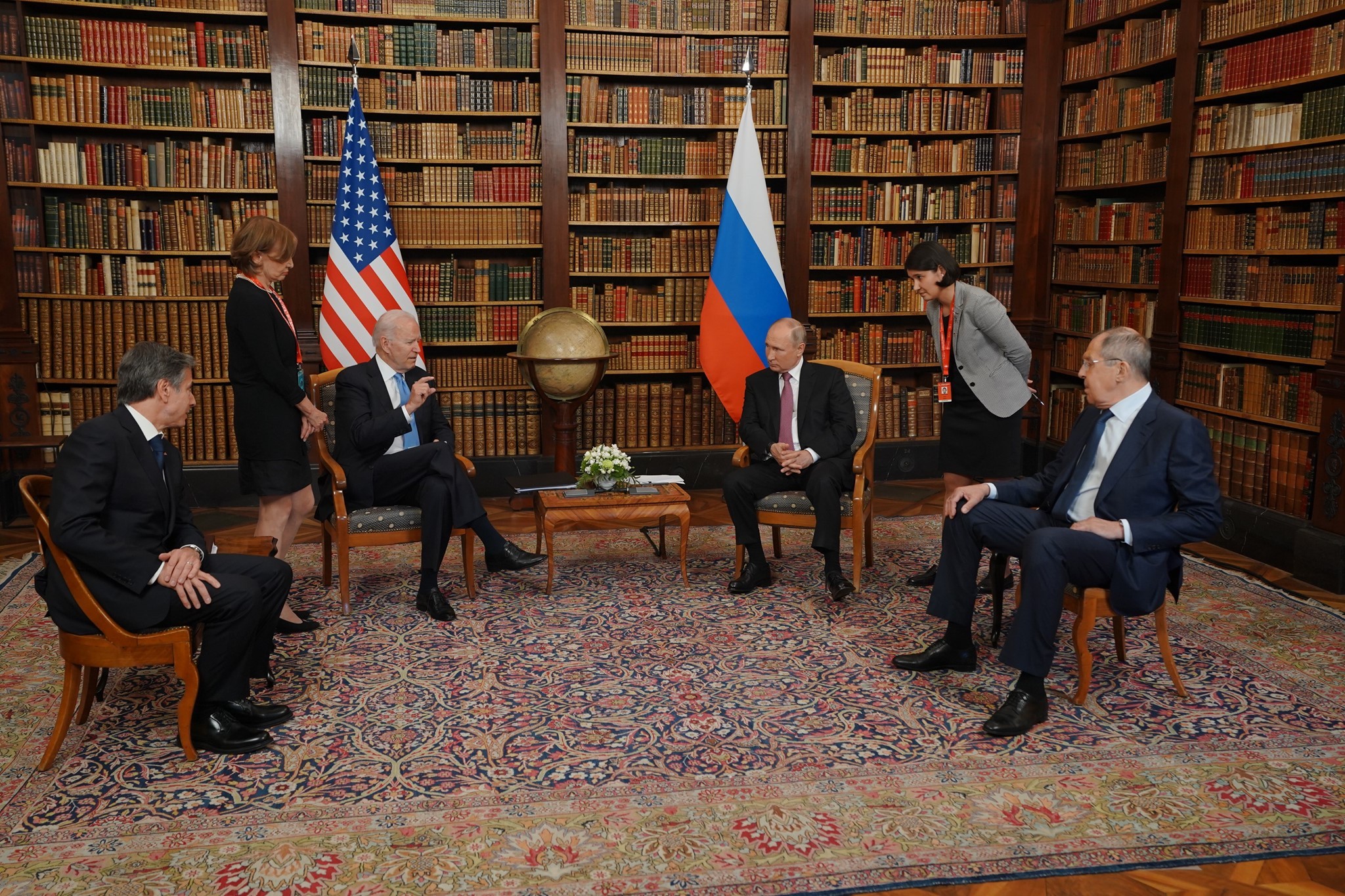 U.S.-Russia Summit in Geneva | Credit: The Biden White House
U.S.-Russia Summit in Geneva | Credit: The Biden White House
Why Putin Shouldn’t Invade Ukraine
These recent weeks have seen an escalation of tensions between Ukraine and Russia not seen since at least Russia’s invasion of Crimea in 2014. The United States and United Kingdom, possibly as a tactic to prevent Russia from invading, have publicly stated intelligence on how Russia intends to install a friendly government in Ukraine as it weighs whether to invade or not. The information’s accuracy may be debatable, but the escalation of rhetoric from the West is almost certainly necessitating that Putin recalculate his current strategy. As the costs of war are becoming more apparent, it would be prudent for Putin to not invade Ukraine and instead seek a negotiated settlement that ensures Russia remains a respected global power.
The Costs of Invasion
There is little doubt that Russia has a significant upper hand above both Ukraine and NATO, particularly as NATO members are showing internal divisions and appear inclined to avoid direct military opposition to a Russian invasion of Ukraine. Europe’s and the U.S.’ reaction is complicated by the fact that Ukraine is not a member of NATO, officially leaving it out of the organization’s security umbrella. Militarily, Russia is at a position of strength as it currently outnumbers and outguns the Ukrainian military in troop strength, tanks, artillery, and aircraft. This will allow Russia to move quickly within the first few days of invasion, possibly seizing key towns and landmarks early in its advance.
However, an invasion of Ukraine will not be easy and can possibly be drawn out for the Russians. Russian logistical systems aren’t capable of supporting a prolonged occupation of a hostile country as its logistical formations are considerably smaller than its western counterparts and unable to move many supplies outside of its railways. Assuming Ukrainian infrastructure will likely be damaged by retreating Ukrainians or partisans, Russia cannot depend much on Ukraine’s roads and bridges to resupply its forward units. There is also the question of Ukrainian hostility since many have expressed support for defending their country, with Ukraine even tacitly supporting the formation of an insurgency in the event of an invasion. The Ukrainian army too will put a spirited fight, as its capabilities have improved since 2014 and may even be tacitly supported by the West in the event of an invasion. Overall, Russia will find the invasion of Ukraine harder than it appears as the casualties mount on what the Kremlin would hope to be a quick and decisive victory.
NATO needs to adopt a united approach to ensure that the costs imposed on Russia are significant and uniform, without relief valves. In the short term, NATO may face pain of its own, as Russia can use its pipelines to shut off natural gas to Europe, leaving many countries publicly hesitant to support Ukraine. However, Europe may opt to reduce its usage of Russian supplied gas, utilizing a reduction as an additional cost imposed on Russia. In this light, there is much discussion over the role of the Nord Stream 2 pipeline as a tool of pressure against Russia. Europe can find new natural gas suppliers, whether it is Qatar or even the United States, possibly encouraging the EU to take a harder stance towards Russian aggression—but a complete cessation of Russian gas supplies would be extremely difficult. Of course, the Europeans and Americans have other economic tools they can apply, as they can sanction the Russian economy, which they did on a smaller scale in 2014—but while that has depressed Russian income and growth, it has not resulted in a Russian withdrawal from Crimea. While these sanctions can cause short-term pain for those dependent on Russian money, such sanctions would need to be painful, strategically targeted, and coordinated amongst many countries to effectively cripple the Russian economy. But perhaps more importantly, sanctions will need to target and the elites, particularly given its tycoons have regularly used the international financial system to hide their ill-gotten gains, in order to impose economic costs that would harm Putin’s internal support network. On top of these things, a protracted war that leaves Russia isolated and with mounting casualties could spell endless turmoil for a leader eager to remain in power.
An Acceptable Deal for Both Sides
Putin does have a balance of power in his favor, but an invasion would waste his upper hand when he has the U.S., NATO, and the EU eager for a way out. He now can offer a solution that would allow Europe to breathe a sigh of relief. While his original proposal of no further NATO expansion or troops within Eastern Europe is a non-starter, he could propose that NATO issues a moratorium of expansion for a specific time horizon and prevents any deployment of intermediate-missile systems in Eastern Europe. Another proposal, while difficult for Ukraine, would be for Ukraine to withdraw its overtures to NATO or the EU (potentially saving itself from the threat of invasion), allowing both blocs a way to save face and for Putin to claim victory. Either way, Putin now has the opportunity to take his winnings through diplomacy before it turns into losses.





